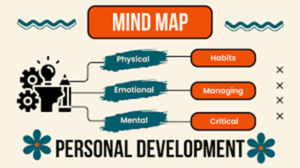Balancing self-care with professional growth is not just a necessity but an art that leads to a more fulfilling and productive life. This article delves into how self-care can fuel professional success and offers practical strategies for achieving this balance.
By understanding the interplay between personal well-being and career aspirations, individuals can unlock their full potential and thrive both personally and professionally.
In the relentless pursuit of professional success, many of us neglect the fundamental pillar that supports it all: self-care. It’s a common misconception that dedicating time to personal well-being detracts from our career ambitions.
However, the truth is quite the opposite. Prioritizing self-care not only enhances our health and happiness but also amplifies our professional capabilities. This article aims to shed light on the importance of integrating self-care into our professional lives and provides actionable strategies to achieve this balance for sustainable success.
Understanding Self-Care and Professional Growth
Self-care is a holistic practice that encompasses activities and habits that nurture our physical, emotional, mental, and social well-being. It’s about making choices that support our overall health and happiness, such as regular exercise, healthy eating, mindfulness, and maintaining social connections.
Professional growth, on the other hand, involves the continuous process of developing skills, gaining knowledge, and building a network to advance in our careers. This includes formal education, on-the-job learning, attending workshops, and seeking mentorship.
The synergy between self-care and professional growth is undeniable. When we take care of ourselves, we are more focused, creative, and resilient. This, in turn, enhances our ability to perform at our best in our professional roles. Conversely, when we invest in our professional growth, we often find a sense of fulfillment that positively impacts our overall well-being. Understanding this interconnection is crucial for achieving a balanced and successful life.

The Challenges of Balancing Self-Care and Professional Growth
Achieving a balance between self-care and professional growth is not without its challenges. Time constraints are a significant barrier, as we juggle work responsibilities, personal commitments, and self-care activities. The societal pressure to always be “on” and the internal drive to excel professionally often lead us to prioritize work over our personal needs.
Consider the scenario of a young professional striving for a promotion. The pressure to outperform may lead to late nights at the office, skipped meals, and sacrificed weekends. Over time, this can result in burnout—a state of physical and emotional exhaustion that diminishes productivity and satisfaction. Recognizing these challenges and understanding their implications is the first step towards finding a sustainable balance.
Achieving a balance between self-care and professional growth is not without its challenges. Time constraints are a significant barrier, as we juggle work responsibilities, personal commitments, and self-care activities. The societal pressure to always be “on” and the internal drive to excel professionally often lead us to prioritize work over our personal needs.
One of the most overlooked aspects of self-care is sleep. Adequate sleep is crucial for cognitive function, emotional well-being, and physical health. Lack of sleep can impair decision-making, reduce productivity, and increase stress levels. Prioritizing sleep is essential for maintaining the energy and focus needed for professional growth. Establish a consistent sleep routine by going to bed and waking up at the same time every day, creating a restful environment, and limiting screen time before bed.
Proper nutrition and hydration play a vital role in maintaining energy levels and overall health. Eating a balanced diet that includes a variety of fruits, vegetables, lean proteins, and whole grains can boost your immune system and improve cognitive function. Staying hydrated by drinking plenty of water throughout the day is equally important. Avoid excessive consumption of caffeine and sugary drinks, as they can lead to energy crashes and negatively impact your health.
Building and maintaining strong social connections is a key component of self-care. Positive relationships with friends, family, and colleagues provide emotional support, reduce stress, and enhance overall happiness. Make time to connect with loved ones regularly, whether through phone calls, video chats, or in-person meetings. Participating in social activities and community events can also help you build new relationships and expand your support network.
Engaging in hobbies and interests outside of work is essential for a well-rounded life. Pursuing activities you enjoy can provide a sense of accomplishment, reduce stress, and improve your overall well-being. Whether it’s painting, playing a musical instrument, gardening, or hiking, make time for activities that bring you joy and relaxation. Hobbies can also offer opportunities for personal growth and creativity, which can positively influence your professional life.
There are times when balancing self-care and professional growth can feel overwhelming, and seeking professional help is a valuable step. Therapists, counselors, and coaches can provide guidance, support, and strategies for managing stress, improving mental health, and achieving your goals. Don’t hesitate to reach out to a professional if you feel stuck or need assistance in navigating challenges.
Financial stress can significantly impact your well-being and professional performance. Practicing financial wellness by managing your finances effectively can reduce stress and provide peace of mind. Create a budget, track your expenses, and save for future goals. Consider consulting with a financial advisor to develop a personalized financial plan. Financial stability allows you to focus more on self-care and professional growth without the added burden of financial worries.
Developing a personalized self-care plan can help you stay committed to your well-being. Start by identifying areas of your life that need attention and set specific, achievable goals. Schedule regular self-care activities and make them non-negotiable. Monitor your progress and adjust your plan as needed. Remember, self-care is not a one-size-fits-all approach, and your plan should reflect your unique needs and preferences.

5 Keys for Integrating Self-Care into Professional Life
- Time Management and Prioritization
Effective time management is a cornerstone of balancing self-care and professional growth. Techniques like the Eisenhower Matrix, which helps prioritize tasks based on their urgency and importance, can be invaluable. Time blocking, where specific time slots are dedicated to different activities, ensures that both work and self-care are given the attention they deserve. Setting realistic goals and breaking them down into manageable steps can help prevent the feeling of being overwhelmed.
- Setting Boundaries
Establishing clear boundaries between work and personal life is crucial. This means setting limits on working hours, taking regular breaks, and ensuring that personal time is respected. Learning to say no to additional tasks and delegating responsibilities can help alleviate unnecessary stress. By protecting our personal time, we create space for self-care activities without feeling guilty or interrupted.
- Mindfulness and Stress Management
Mindfulness practices, such as meditation and deep breathing exercises, can significantly reduce stress and enhance mental clarity. Incorporating short mindfulness sessions into our daily routines, even for a few minutes, can improve focus and emotional stability. Engaging in activities that promote relaxation, such as yoga or listening to music, can help manage stress in high-pressure environments.
- Physical Health
Maintaining physical health is a fundamental aspect of self-care. Regular exercise, a balanced diet, and adequate sleep are essential for overall well-being. Finding time for physical activities, whether it’s a morning jog, a yoga session, or a gym workout, can boost energy levels and improve mood. Preparing nutritious meals and establishing a consistent sleep schedule contribute to sustained physical and mental health.
- Continuous Learning and Personal Development
Lifelong learning is integral to professional growth. However, balancing professional development with self-care requires intentional effort. Allocating specific times for learning activities, such as reading, attending webinars, or enrolling in courses, ensures that personal growth does not come at the expense of well-being. Combining learning with self-care, such as listening to educational podcasts during a walk, can be an effective approach.
Balancing self-care and professional growth is a continuous journey that requires intentional effort and dedication. By prioritizing sleep, nutrition, social connections, hobbies, and seeking professional help when needed, you can create a sustainable approach to achieving success in all areas of your life. Financial wellness and a personalized self-care plan further support this balance, ensuring that you thrive both personally and professionally. Remember, taking care of yourself is not a luxury but a necessity for unlocking your full potential and achieving long-term success.
Are you ready for TRANSFORMATION?
Dzigbordi Kwaku-Dosoo is a Ghanaian multi-disciplinary Business Leader, Entrepreneur,
Consultant, Certified High-Performance Coach (CHPC™) and global Speaker.
She is the Founder and CEO of The DCG Consulting Group.
She is the trusted coach to top executives, managers, teams, and entrepreneurs helping
them reach their highest level of performance through the integration of technical skills
with human (soft)skills for personal development and professional growth, a recipe for
success she has perfected over the years.
Her coaching, seminars and training has helped many organizations and individuals to
transform their image and impact, elevate their engagement and establish networks
leading to improved and inspired teams, growth and productivity.










